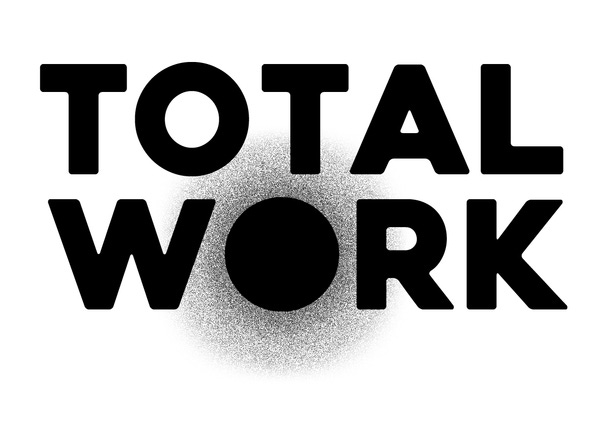Total Work Newsletter #7: If You Don't Work, Then You Probably Don't Exist

Total Work, a term coined by the philosopher Josef Pieper, is the process by which human beings are transformed into workers as work, like a total solar eclipse symbolized in the logo above, comes to “occult” all other aspects of life. In these newsletters, I’ll be documenting, reflecting upon, and seeking to understand this world historical process, one that started at least as far back as 1800 and quite possibly well before then.
Experimenting: Some readers have suggested that this newsletter, especially the longform essays attached to the end, may be on the long side and therefore can make it daunting to read at times. Know that I’ll be experimenting to seek what’s possible within, as well as at the margins, of the newsletter genre. In this issue, I conclude with some brief theses, aphorisms, and witticisms.

Les Très Riches Heures du duc de Berry, 1410
#1: All Work and No Play Make Jack a Something Something... 1 min. | LinkedIn? | Video H/T James Parnell
Video: Researchers studied 100 typical Americans to see how their typical day looked in terms of work, travel, religion, and so on. This video, only 1 min. 24 sec. long, is definitely worth watching.
Remark #1: The researchers couldn’t understand what leisure is, and so it becomes the catch-all category for (a) what’s not gainful employment, (b) what’s not sleeping, and © what’s not traveling. Moreover, they muddle the distinction between leisure and “free time.”
Remark #2: What’s fascinating about this video is that it shows secularism in action. It would be nice, I think, to show a similar video of ancient Greeks, of Hebrews, of Christians during the Middle Ages, and so on to order to really grasp the meaning of this video. What nonetheless remains clear is that a good human life, in a secular, industrial/post-industrial age, is thought to be rooted in work and in a narrow set of categories not considered to be work. Religion, for instance, accounts for less than 1% of typical American daily activity.
#2: Is Indolence Not the Root Cause of Poverty? The Undeserving Poor: A Very Tiny History 7 min. | Medium | History H/T Misha Lepetic
Medium Sum: “In the column I published yesterday in the Post (and Sunday in the print version), I argued that poor people shouldn’t be forced to work to receive government assistance. A little bit of history wound up on the cutting room floor (and rightfully so) but I wanted to share it with you here, along with a couple other thoughts on the same subject, in case you’re interested.”
Overview: Elizabeth Bruenig tells a fascinating story about the “distinctions [that] have always been drawn [in the Latin West] between those deserving of generosity and those not, though the dividing lines have changed over time.” Augustine held that one should give only to the deserving poor while some others held that one should give to any poor person who asks and others still that a Christian had no obligation to give. She concludes provisionally, “In three different eras, in other words, we encounter three different ways of slicing up the poor into those who deserve charity and those who don’t. For the pre-Christian Romans, it was all about citizenship; for (some of) the Church fathers, it was about avoiding the nurturing of vice; for the medievals, idleness was an extraordinary offense, but there were very careful distinctions made between those unfortunately out of work (as those struck by famine) and those neglecting their opportunities.”
Her Central Concern: Her central concern is with our post-Victorian period, which identifies poverty with immorality and which makes the issue of poverty into a matter of social control.
#3: The Amish Got Something Right about Tech Kevin Kelly — The Universe Is a Question 2 or 30 min. | On Being | Interview
In Brief: If you read just the excerpt I point you to, then it’s about a 2 minute read.
Start Reading Here: I suggest using the Control-F and searching for “Amish.” Begin reading here: “The Amish, for listeners that don’t know, are a group of religiously bent people….” It’s a short, interesting take on how collectively a people might think about their relationship with technology. One: does this piece of technology serve my family? Two: does it serve our community?
#4: What? Not 40 or 70 Hours? In a Shift, Young Germans Win a 28-hour Work Week 2 min. | Axios | Newsletter
Axios Sum: “Millennials in many developed countries are willing to take lower salaries for less work.”
Historical Perspective: The debates, led largely by labor unions, over shorter workweeks loomed large from 1880-1900 and from 1900-1930 or so, as the historian Benjamin Hunnicutt shows. Those debates died down after 1930, leaving us to “forget” and thus to incorrectly believe that the 40-hour workweek is set in stone.
#5: Back to Artisanship! Crafting a Life | 15 min. | Economist | Feature H/T Khe Hy
Economist Sum: “White-collar workers are fleeing their desks to become brewers, bakers and pickle-makers. Ryan Avent reckons the artisanal boom points to the modern economy’s failings, and maybe its future as well.”
In brief: The article is concerned with the relationship between the professional class and the artisanal class of people trying their hand at making craft items to be purchased by the professional class. Avent wonders, at the end, whether this could be one picture of the future of work. (I can’t help but think that he’s read Derek Thompson’s 2015 Atlantic article, “A World without Work.”)
Uncannily…: The author noted my two initial objections, envy and professional subsidies, just as they were arising: “One consequence is that employment in the craft economy, once the domain of hippies and eccentrics, now carries a certain status. Leaving professional life for the artisanal world inspires envy among friends, says Katie Stack, the founder of the artisanal leather-working business Stitch and Rivet, which operates out of a large studio not far from Kuzeh. She tells me that her attorney (whose knitted goods Stack sells alongside her leather pieces) ‘wants to quit and do what I do.’ Another consequence is that the professional world subsidises the production of artisanal goods.” And a third possible objection: “Some [starting their own craft businesses] have professional spouses who take most of the financial strain.”
#6: From Margins to Mainstream Everyone a Changemaker 3 min. | NYT | Op-ed
NYT Sum: “The inventor of the term ‘social entrepreneur,’ Bill Drayton, has a challenge for the world.”
A Brief Thought: I include this short piece because, in my view, once David Brooks starts writing earnestly about “change makers” and “change agents,” you know the terms have (almost) gone mainstream. I remember, back in 2012, when I first taught at Kaospilot in Denmark or when I was helping out with the Mycelium School in Asheville, North Carolina. These places seemed “out there,” maybe even “countercultural” or “fringe,” and now terms like “social entrepreneur” and “social innovator” are close to being mainstream. It’s an interesting development, one worth keeping an eye out.

H.G. Wells, The Invisible Man
Theses, Aphorisms, and Witticisms
1. Total work created the work society.
2. In the work society, if you want to convince somebody that something is good or valuable or important and so is worth taking seriously, then call it work. An earnest artist? A working artist. A devoted mother? A stay-at-home mother whose “most fulfilling job” is to raise her children. A masterful rock climber? A professional climber.
3. “Where is John?” “He’s busy at work.” “Oh, of course.” Case closed.
4. What’s best is to be busy. Second best is to try to keep busy. (“You keepin’ busy?” “Man, I’m tryin’ to.”) Worst is be idle (or even an idler). (Is not, in our culture, the most damning condemnation calling someone useless or else indolent? And are there no other terms apart from busyness and idleness with which to understand activities that make up our lives? )
5. It was once quipped that if you’re not on Facebook, then you don’t exist. Well, if you’re of working age and you’re not working, then you probably don’t exist.
6. Working is an unenforced obligation: you ought to work even if we won’t make you work. (But if you’re not working, then, in our eyes, you may not exist. (Even if you’re not actually poor.))
7. Stories about 70-100-hour workweeks in tech or finance and about the German union securing a 28-hour workweek are not, strictly speaking, stories about the number of hours worked or not worked. They’re about two rival conceptions of the good life. And they both can’t be right.
8. Try this exercise: without thinking, feel how important each of these sounds: attending a meeting, walking in a field, taking a call, seeing the stars, meeting a deadline, reading a book, worshipping. (See what I mean?)
9. Byron Katie’s genius was to brand a certain process of self-inquiry The Work. (And then to construct a command: “Do The Work.”)
10. The poor are poor because they don’t, or won’t, work. (Is that true?)
11. We don’t really know what leisure is. It just seems to be the catch-all category for whatever we can’t fit into work. Not yet anyway.
Something Extra
Anthropic Capitalism and The New Gimmick Economy 5 min. | Edge | Science Fiction
Edge Question: In 2016, “What do you consider the most interesting recent [scientific] news? What makes it important?”
Opening Paragraph: “Consider a thought experiment: If market capitalism was the brief product of happy coincidences confined in space and time to the developed world of the 19th-20th centuries, (but that were no longer true under 21st century technology) what would our world look like if there were no system to take its place? I have been reluctantly forced to the conclusion that if technology had killed capitalism, economic news would be indistinguishable from today’s feed….”
Comments, Suggestions, Articles on Total Work?
Feel free to send comments, suggestions, canards, and articles about total work to me at Andrew Taggart <totalwork.us@gmail.com>.
